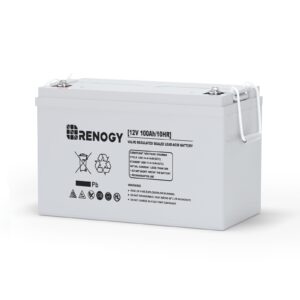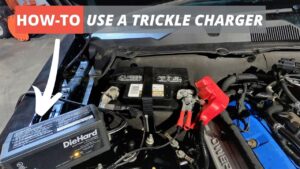Installing a Tesla charger can cost between $800 to $1,500, depending on several factors like your location, the complexity of the installation, and any necessary electrical upgrades. If you’re considering making the switch to electric and want to charge at home, understanding the costs involved is essential.
The process can seem daunting, but knowing how much does electrician charge to install Tesla charger helps you budget effectively. Skilled electricians will evaluate your current electrical setup and recommend the best approach for your needs.
Whether you’re a new Tesla owner or looking to upgrade your home charging capabilities, this guide will walk you through the key considerations and average costs to help you make an informed decision.
How Much Does an Electrician Charge to Install a Tesla Charger?
Installing a Tesla charger, also known as a Wall Connector, comes with its own set of costs and considerations. If you own a Tesla or are thinking about getting one, you might wonder how much an electrician will charge to set up a charging station in your home. Understanding these costs will help you make informed decisions about this investment. Let’s break it down in detail.
Factors Influencing the Cost of Installation
Several key factors impact the overall cost of installing a Tesla charger. By identifying these elements, you can better predict how much you’ll spend.
Type of Charger
Tesla offers different types of chargers. The two main options are:
- Tesla Wall Connector: This is the most efficient option, providing faster charging times. It usually costs more upfront but is worth it for its efficiency.
- Standard Outlet Charging: You can also charge your Tesla using a standard 240V outlet. This option is less costly initially but charges the vehicle slower.
Electrician’s Labor Rates
Electricians typically charge based on several factors, including:
- Experience: More experienced electricians may charge higher rates due to their expertise.
- Location: Rates vary significantly by region. Urban areas often have higher labor costs than rural locations.
- Job Complexity: If the installation involves complex electrical work, expect to pay more.
Permitting Costs
Depending on where you live, you may need to obtain a permit before installation. The cost of permits can vary widely, but it’s an essential part of the process. Always confirm the requirements with your local municipality.
Electrical Upgrades
In some cases, your home’s electrical system may need upgrades to support a Tesla charger. This could include:
- Upgrading the electrical panel: If your panel is outdated or cannot handle the additional load, you might need a new one.
- Wiring improvements: Older wiring might not be compatible with the new charger, leading to additional costs.
Average Cost Estimate
So, how much can you expect to pay for a Tesla charger installation? Let’s look at a breakdown of costs associated with hiring an electrician.
Charger Purchase Cost
The Tesla Wall Connector costs between $400 to $600, depending on the model and features. If you opt for a standard outlet option, the costs will be lower, but charging times will be slower.
Installation Labor Costs
The installation labor rates can range from $100 to $250 per hour, depending on the factors discussed earlier.
– **Simple Installations**: For straightforward installations with no major upgrades needed, expect to pay between $300 and $600 for labor.
– **Complex Installations**: If your project requires significant upgrades or involves difficult access areas, costs can rise to $1,000 or more.
Permitting Costs
Permitting can range from $50 to $200, depending on your locality. Factor this into your overall budget.
Additional Costs
Keep an eye out for possible extra expenses. These may include:
- Electrical panel upgrade: $1,000 – $3,000
- New wiring: $200 – $600
- Conduit installation: $100 – $300
Potential Savings and Incentives
Cost doesn’t always have to be a burden. There are ways to save money on installation.
Tax Incentives
Some states offer tax credits for installing electric vehicle chargers. Check the IRS website or your local department of energy for details on available incentives.
Utility Rebates
In some areas, electric utility companies provide rebates for homeowners who install EV chargers. This can significantly reduce your overall costs.
DIY Options
If you have the skills, you might consider some DIY components. However, always hire a licensed electrician for the final installation, as local codes and safety requirements need to be met.
Choosing the Right Electrician
Finding the right electrician for your Tesla charger installation is crucial. Here are some tips to help you choose wisely.
Check Credentials
Make sure the electrician is licensed and insured. This ensures that they are qualified to perform the work and protects you in case of accidents.
Ask for Estimates
Get multiple quotes before making your decision. This helps you understand the range of potential costs and lets you pick the best option.
Read Reviews
Look for online reviews and testimonials. Customer feedback gives you insight into the quality of the electrician’s work.
Experience with EV Installations
Choose an electrician who has experience specifically with electric vehicle charger installations. This experience can save time and ensure a proper installation.
Installation Process Overview
Understanding the installation process can demystify the entire experience. Here’s what you can expect.
Site Assessment
The electrician will start with a site assessment. They will evaluate your current electrical system, discuss where you want the charger, and determine what upgrades are necessary.
Permits and Approvals
After the assessment, the electrician will handle obtaining the required permits. This ensures that the installation meets all local building codes.
Installation Day
On the installation day, the electrician will:
- Shut off power to ensure safety during installation.
- Install the charger unit securely.
- Make any necessary wiring connections.
- Test the system to confirm everything works correctly.
Final Inspection
After installation, some areas require an inspection to ensure everything meets building codes. The electrician will guide you through this process.
Training and Usage
Finally, the electrician will explain how to use the charger and answer any questions you may have. They might also provide tips for optimal usage.
Maintaining Your Tesla Charger
After installation, keeping your Tesla charger in good condition is important. Here are a few maintenance tips:
- Regular Inspections: Have an electrician check your charger every few years for any wear or damage.
- Clean the Charger: Keep the charger clean and free of debris to ensure proper functionality.
- Monitor Charging: Pay attention to the charging speed and any errors, which could indicate a need for repairs.
By following these guidelines, you’ll maximize the longevity and efficiency of your Tesla charging station.
Investing in a Tesla charger installation requires thoughtful consideration, but understanding the costs and processes involved can make it a smoother journey. By knowing what to expect, choosing the right professionals, and maintaining your charger, you’ll enjoy a seamless electric vehicle ownership experience.
How much does it cost to install a tesla charger at your house?
Frequently Asked Questions
What factors influence the cost of installing a Tesla charger?
The cost of installing a Tesla charger can vary based on several factors. These include the type of charger you choose, the distance from your electrical panel to the installation site, the existing electrical infrastructure, and any necessary permits or modifications. Additionally, the electrician’s rates can differ depending on their experience and location.
Are there any additional costs associated with installing a Tesla charger?
Yes, there may be additional costs to consider when installing a Tesla charger. If your home requires electrical upgrades, such as a new panel or increased amperage, these improvements can add to the overall cost. Additionally, if the installation site requires any special materials or tools, such as conduit or wiring, this can also impact the final price.
Can I install a Tesla charger myself to save on costs?
While technically you can install a Tesla charger yourself, it is highly recommended to hire a licensed electrician. This ensures the installation complies with local codes and regulations, which can help prevent safety hazards. Additionally, some manufacturers may void their warranty if the charger is not installed by a qualified professional.
How long does it typically take to install a Tesla charger?
The installation time for a Tesla charger usually ranges from a few hours to a full day. This duration depends on the complexity of the installation, such as the distance from the electrical panel or any additional electrical work required. A straightforward installation with minimal upgrades will take less time compared to a more complex setup.
Are there any rebates or incentives for installing a Tesla charger?
Many regions offer rebates or tax incentives for installing electric vehicle chargers, including Tesla chargers. These incentives can significantly reduce the overall cost. It’s advisable to check with local utility companies and government programs to see if you qualify for any financial assistance before proceeding with the installation.
Final Thoughts
The cost of hiring an electrician to install a Tesla charger varies based on several factors, including location and complexity of the installation. On average, homeowners can expect to pay between $300 and $1,500.
This price often includes labor, materials, and any needed permits. For an accurate estimate, always consult a local electrician who can assess your specific needs.
In summary, knowing how much does electrician charge to install Tesla charger helps budget for this essential upgrade. Investing in a home charger enhances convenience and supports your electric vehicle journey.



